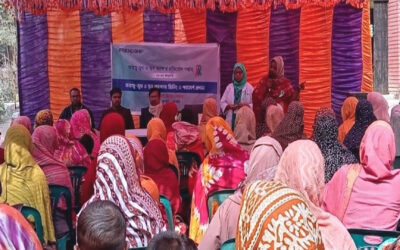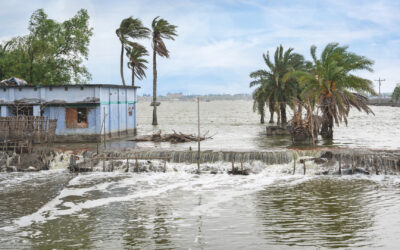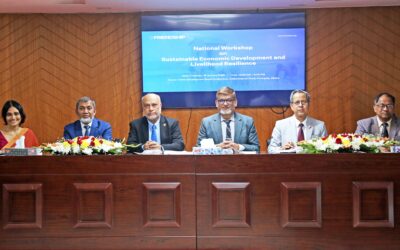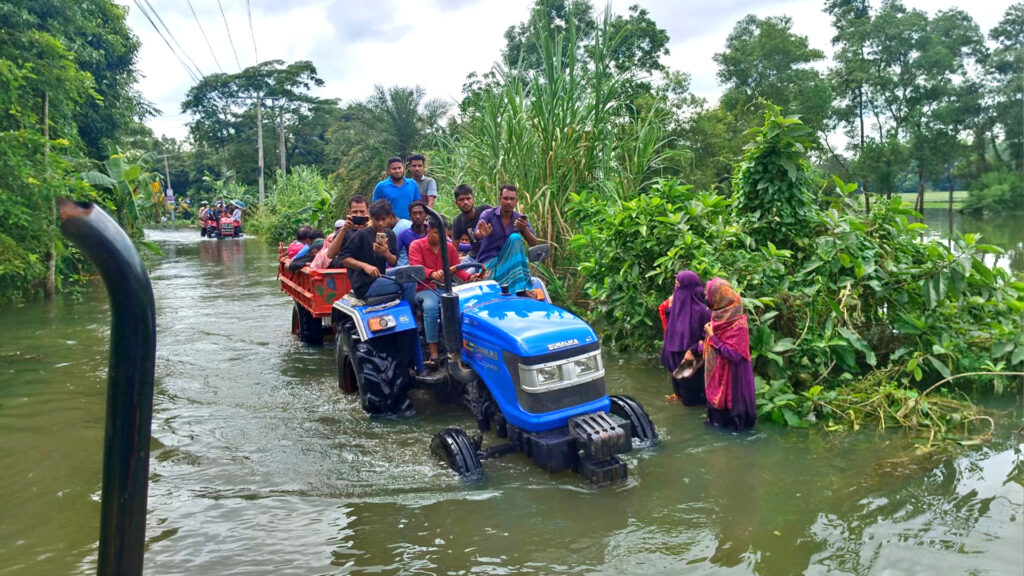
by Abu Bakar Bin Alam,
August 20, 2024
Frequent natural disasters like flooding were one of the key reasons behind Friendship’s formation. For over 22 years, Friendship has been intricately involved in flood preparedness and relief operations in the northern swathes of Bangladesh, one of the most climate-affected and remote areas in the country. The valuable experience gained through rigorous application of approaches and methods, tried and tested through adversities and sometimes surprises, is what motivates Friendship to confront floods tirelessly.
The foremost concern during floods is to save lives, that is, ensure people are timely evacuated to secure locations where they have access to food, shelter, healthcare, and accessibility. Providing disaster preparedness training to volunteers helped mobilise the people in the community, who are the most valuable resource in Friendship’s eyes. These community volunteers are invaluable with their local knowledge, relationships, and experience of dealing with floods, they are able to promptly organise evacuation efforts to ensure the most vulnerable groups are not left behind during the brewing crisis.
After relocation from a flood, it is imperative to ensure clean water and sanitation. Friendship deploys floating latrines for sanitation during floods that destroy static latrines and become a vector for waterborne diseases. In the southern coastal regions where salinity is a persistent threat, Friendship has installed six water filtration plants that provide safe drinking water. But in the wake of the devastations wrought by Cyclone Amphan in 2020, Friendship relief teams delved into action with a mobile water filtration system whose compact form factor and portable nature could prove to be significant in producing drinkable water in remote or inaccessible areas.
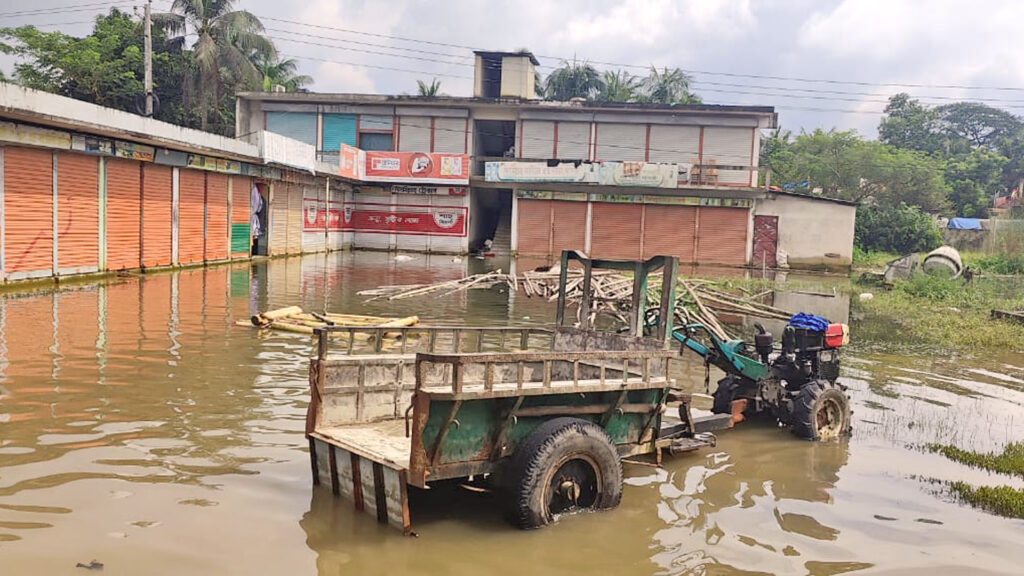
When people are trapped in waterlogged locations with rising water levels, getting them the necessary healthcare is a very difficult challenge. Friendship’s floating hospitals – a fleet of remarkably well-equipped ships – drop anchor in strategic locations and serve as mobile medical centres that can be much more easily accessible than land hospitals under the circumstances.
The immediate next risk is livelihoods. Even when floods do not take a human life, they can destroy homes and means of living. When crops, poultry farms, livestock, markets, etc, are washed away, the people’s hopes and dreams often go with them. The victims of floods can only survive with emergency aid, but they can truly live when they are equipped with the necessary resources to be self-reliant once more. Friendship provides a slew of assistance in the form of seeds, fertilisers, livestock, and microfinancing and transitional funds to bring those that are the worst affected to a level that they are capable of taking on the other interventions.
Friendship also helps in restoring infrastructure affected by flooding, such as roads, and embankments, disinfecting and repairing tube wells, providing easily dismantlable schools, community centres, latrines and other facilities mean that they can be easily relocated within hours, and people can regain access quickly. Furthermore, Friendship has strived to empower households with solar energy systems, which can also be swiftly set up or dismantled.
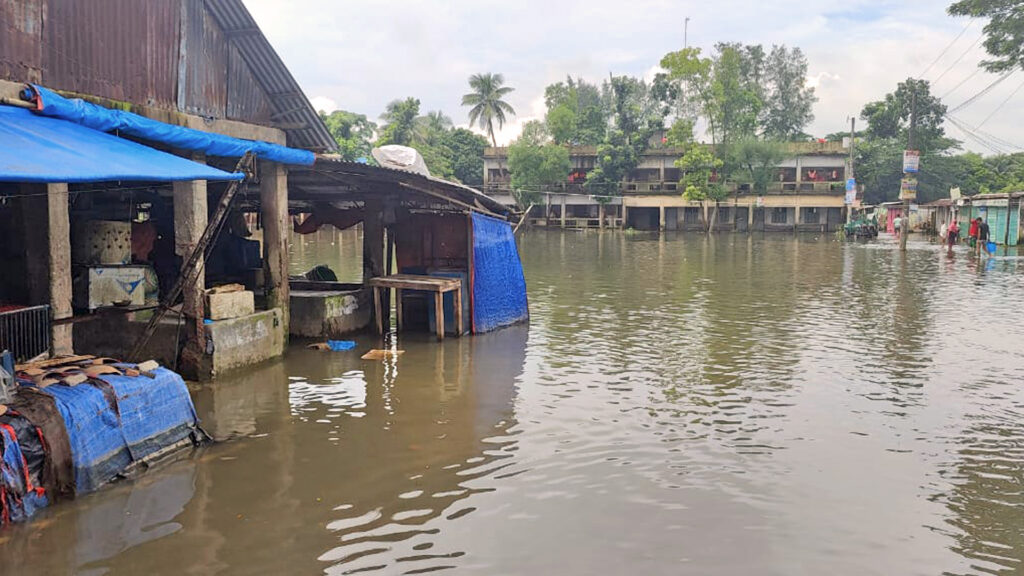
The most recogniseable of Friendship’s flood preventive measures are the raised plinths designed specifically with sustainable climate adaptation in mind. The clustered houses are constructed on elevated land to minimise the impact of the onrushing tide. They also contain a freshwater pond as a water reservoir in times of crisis, along with a school, community centre, livestock sheds, solar lights and housing for dozens of families. So far they have been constructed only in northern Bangladesh where the flood impact have been historically more profound, but they can be just as effective elsewhere.
What defines Friendship’s success in combating flood situations is the widespread application of locally-led adaptions by community volunteers. Friendship’s Community Initiated Disaster Risk Reduction (CIDRR) methodology has been a monumental success rooted in the participation and effectiveness of the people who suffered from the floods. The prolific activities have garnered the respect and cooperation of beneficiaries and local governments whose assistance is invaluable in navigating the regions. Friendship has been ever-vigilant to help people help themselves. With more than two decades of timely interventions, Friendship is confident to mobilise the expertise and assets to lend a hand to wherever people are affected by floods.

